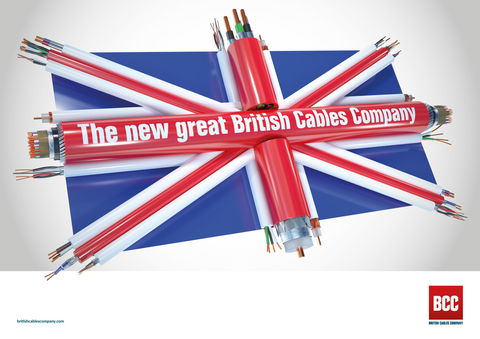One of the most important things in regard to implementing technology in workplaces today is also the most overlooked and underappreciated: cable

As the world changes more cable is being used than ever before. In our digital universe, data is at its heart.
Not only are more people and businesses doing everything online, but all of the smart devices connected to the internet are generating or receiving data. More data means more data transfers, which means more cable. Cable is key in the designs that are helping to exchange data, in networking, and to power cables to keep machines and industry running smoothly.
Embedded in the process of cable manufacturing is British Cables Company (BCC) – a business synonymous with all of the steps to meet the international standards of the cable market.
Cable manufacturing at the plant in Blackley, Manchester is steeped in history with the factory being operational for more than 120 years. This longevity brings invaluable experience and expertise, which places BCC as a world class, industry respected cable manufacturer and supplier.
A history in cable
1895 – Connolly Bros established a cable company
1959 – Wholly Owned subsidiary of BICC Plc
1975 – Becomes BICC Telecommunications Cables Limited
1999 – Acquired by Corning
2000 – Acquired by Belden
2006 – Acquired by B3
2012 – Acquired by BT
Kevin Samuel, BCC’s Managing Director and his management team, are the force driving forward the former BT Cables business, the foremost supplier of cabling products and accessories, to a range of markets, including rail, telecommunications, infrastructure, buildings and industrial.
He explains that the BCC business philosophy is simple and underpins everything it stands for:
- Understand customer needs.
- Develop solutions to meet those needs.
- Ensure delivery of a first-class quality product, on time, every time.
The philosophy has buoyed the manufacturer over the years and helped it grow. BCC is steadfastly developing the product offering, and being a member of the Wilms Group helps them supply copper and optical-fibre cable to the core of intranet, internet and other communications networks worldwide.
Differentiation
The challenge BCC faces is in differentiating themselves from the competition when the business of cable manufacture is price-sensitive, cyclical, and competitors develop to a common specification.
To remain competitive, BCC embraces continuous improvement to drive success from its services:
- Cradle to grave for cable from manufacturing
- Cut-to-length
- Next-day delivery anywhere in the UK
- Drum management
- Recycling
BCC need to have a best cost position to have control of their destiny, says Paul Farrell, BCC’s Commercial Director. Lean's attraction for BCC was both for waste-elimination and a reliance on the talents of the entire workforce to continually improve.
The focus on continuous improvement translates to bottom-line benefits, which BCC now want to extend to potential supply chain partners.
Farrell says: “We want to become a company focused on the supply chain and for delivery excellence. Bottom of FormA lot of people are buyers and sellers of commoditised product and while we have commoditised product in our range we also understand how to influence the outcomes of certain designs.”
Farrell says if distributors and wholesalers put their products out in the marketplace BCC can offer technical and practical support by giving customers an overview of the cable process as well as demonstrating the value in their proposition.
“We have our own technical and supply-chain experts to ensure the quality of the product, the packaging, and the printing too,” Farrell says. “We therefore have complete confidence that what we supply in the UK will meet all the requirements of a specification. “
He adds: “With the support of Wilms we’re going to have a wider portfolio of products to offer.
We’re in discussions with a number of key members of the group who have products that will suit the UK wholesale market. Ultimately, we expect to see our product portfolio expanding over time.”
Environmental responsibility
British Cables Company recognises its responsibility to balance its business objectives with those of the environment. All regulatory and legislative requirements are met by meeting their environmental performance.
British Cables Company is ISO 14001 certified and fully compliant with RoHS requirements. BCC works to reduce their impact upon the environment and is proud of achievements including a reduction of 3% in power consumption, the substitution of wooden battens by plastic wrapping (50 %), and the redesign of wooden drums to reduce the wood consumption (15%).
